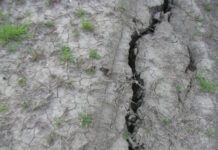Photo credit: DiasporaEngager (www.DiasporaEngager.com).
Jake Paltrow, co-writer and director of “June Zero,” begins his film on the day of the verdict for Nazi Adolf Eichmann in 1961. But rather than focus on Eichmann, as most would do, the film is more about the surrounding society.
If you require linear films that go clearly from point A to B, you may miss what the film has to offer.
On his decision to barely show Eichmann, who was ultimately executed for his crimes in the Holocaust, Paltrow says, “the question was ‘How are we going to make it feel like it’s relevant to a contemporary audience?’ From a personal subjective point of view, these workers are not the higher echelons of power.”
The film centers on David, a young boy from Libya who wants to make his mark in Israel (where Eichmann was tried) by getting a job as a cleaner — but David gets into trouble when he takes something that doesn’t belong to him and overhears a secret conversation.
The boy (played by Noam Ovadia) blurts out that it might be a mistake to execute Eichmann, and his teacher rebukes him.
To this day, Eichmann is the only person Israel has ever executed in the history of the country.
Despite not being a fluent speaker of Hebrew, Paltrow said he decided the film made more sense in that language. He said it was at first a daunting proposition, but then it became easier.
“I thought it would be more difficult than it ultimately was,” Paltrow said. “My co-writer felt confident about me doing it. In our conversation, it just felt like taking every other consideration out of it, what would be the best for the story? The story takes place in this country, in this time, with these actors.”
A few scenes were also shot in Ukraine before Russia’s invasion.
Ovadia is the best part of the film; he sets the foundation of the movie up with a combination of innocence and trickery.
“That was a big concern before we started,” Paltrow said. “[That we didn’t have a great kid]. That was my biggest concern. When we found Noam, who was a non-actor, I remember vividly the excitement I had that I found this boy with such a natural emotional ability and access ,and he’s funny and has a beautiful heart.”
Asked if his Oscar-winning actress sister, Gwyneth, gave him advice for directing the film, he said it was more an example.
“My family is not one of advice givers,” he said. “They are exceptionally good role models for working hard and having long careers and I think for both of us, watching our parents was the lesson that they are good human beings and single-minded about their craft.”
The movie was shot on 18-millimeter film, which Paltrow likes to use instead of a digital process.
“I love it,” he said. “I felt like I spent a lot of time as a younger director learning how to expose it and process it in a way, [so] I could transpose what I had in my mind onto the screen.”
A good portion of the film is about making sure they have the right oven to cremate Eichmann, though one rabbi asks why they don’t simply throw the body into a bonfire.
What ever happened to the oven? “We could never find out what happened to it afterwards,” Paltrow said.
Paltrow said he’s aware that there is a lack of strong Holocaust education outside of Israel, and said: “I think the hope is that first and foremost, (the film) is an emotional experience where you are under a spell until it ends.”
The film could stand to have a few more scenes of greater conflict, but the most powerful moment is when actor Tom Hagi (The Beauty Queen of Jerusalem) delivers a speech as a Polish Holocaust survivor describing getting 25 lashes. I would have liked to have seen this flashback instead of exposition, but Hagi’s speech is piercing.
The film has the proper and gritty look, the actors were credible, and I only wish that more conflict could have been developed. I would have liked Eichmann to be shown much more, but that was a directorial approach I understand.
Jake Paltrow’s drama “June Zero” is about how the Eichmann verdict affected Israeli workers and society, and it’s one I recommend.
The author is a writer based in New York.
Source of original article: Alan Zeitlin / Opinion – Algemeiner.com (www.algemeiner.com).
The content of this article does not necessarily reflect the views or opinion of Global Diaspora News (www.GlobalDiasporaNews.com).
To submit your press release: (https://www.GlobalDiasporaNews.com/pr).
To advertise on Global Diaspora News: (www.GlobalDiasporaNews.com/ads).
Sign up to Global Diaspora News newsletter (https://www.GlobalDiasporaNews.com/newsletter/) to start receiving updates and opportunities directly in your email inbox for free.

































